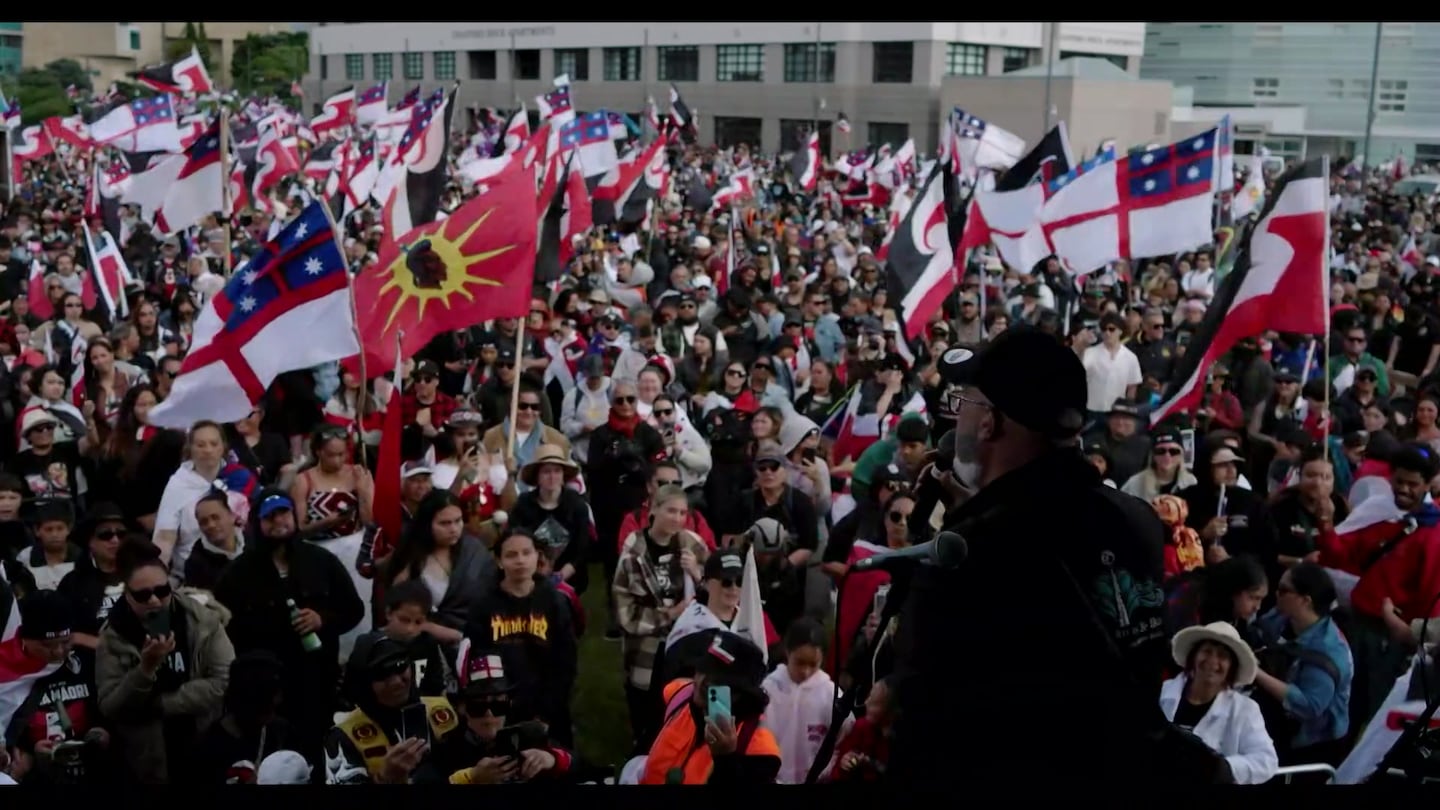For the past nine days the Toitū te Tiriti cry has gathered more and more supporters across the motu to join the Hīkoi mo te Tiriti.
Days of walking through North Island towns, being recognised internationally for their efforts, with tangata whenua, tangata moana, tangata tiriti, me tauiwi walking together against the controversial Treaty Principles Bill.
Numbers grew, with 5000 people gathering in Tāmaki Makaurau and then double that in Rotorua only a few days later.
Police estimated more than 42,000 people have marched on to Parliament grounds for the hīkoi mo te Tiriti.
Here are some of those who decided to join.
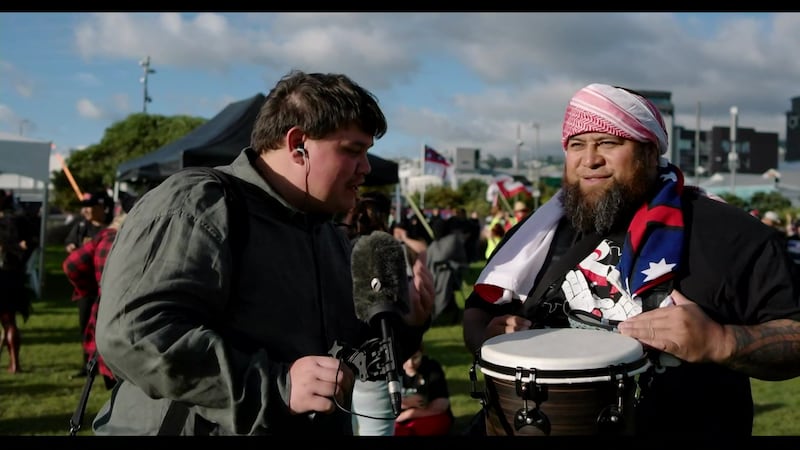
Tyrone Hakaraia-Smith was drumming to his own beat in line with the day’s kaupapa.
“I tap into the mauri. If I hear anyone chanting I’ll support them really with the bass.
“I actually brought [this drum] a year ago with the intention for activism.”
He is here for his children and mokopuna.
“I’ve been mamae for a long time and that’s been put on from a lot of people who’ve been oppressing our way - it’s been uncomfortable for a long time.
“I remember a good friend of mine said, ‘it’s time we moved into the uncomfortableness' and now we’re here.
“I’m here for my children and my mokopuna future,” Hakaraia-Smith said.
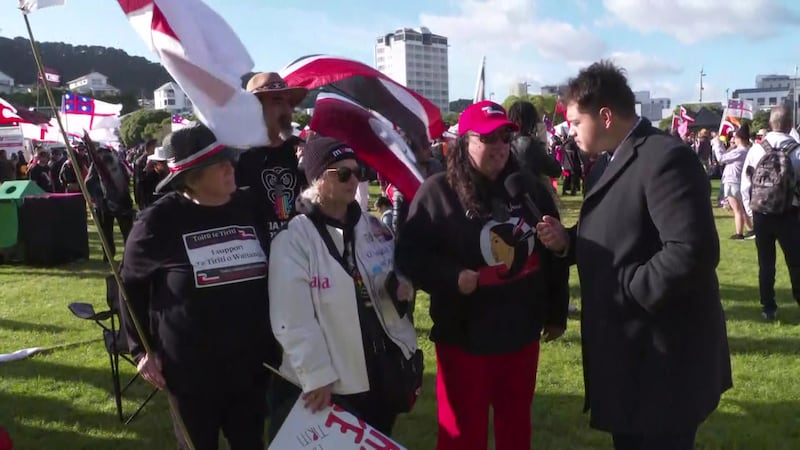
Racheal Tikua has hailed from Heretaunga all the way to the windy city
“It’s really important for us to be here for our tamariki, our mokopuna, and actually for the future generations.
“Te Tiriti is a document that is enduring and it shouldn’t be tampered with, shouldn’t be toyed with, especially when the consultation hasn’t occurred with the partners involved.”
She said the wairua in the capital was “hard to describe”.
“The energy, it’s like electricity, being among our people. It’s powerful to be a collective standing together for the same cause and the wairua is amazing, it’s indescribable, it’s incredible.”
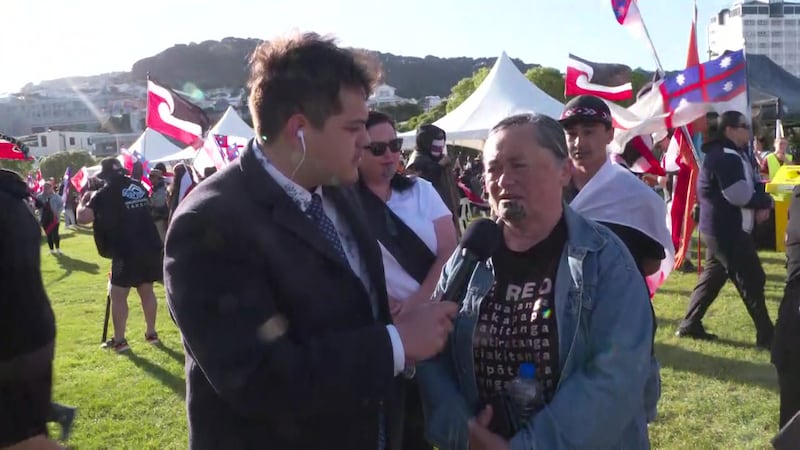
Many students and teachers joined the hīkoi as well. Kaiako Kohuroa Ruwhiu said she has come to support the new generation.
“Kua haere mai mātou, kua mau mai i ētahi o ō mātou ākonga o tō mātou kura kia kite, kia rongo hoki i te whakatupuranga hou e tupu mai ana, ko rātou ēnei. Nō reira, kua heke mai hoki, piki ake rānei ki te tautoko i tēnei kaupapa nui whakahirahira”
“We have come here with some of our students from our school, to see and hear the new generation that is rising, they are the ones. Therefore, we have come down or come up to support this important, significant cause.”
Ruwhiu said the gathering of everyone felt as though the country’s ancestors were looking down upon them.
“Nō reira, ko te wairua o ngā mātua tīpuna e muramura ana ki runga i a tātou e tū nei, tātou e whawhai nei, tātou e hīkoi atu nei. Kua roa tātou te iwi Māori e haka ana i ngā haka,” she said
“Therefore, the spirit of our ancestors is alive among us, shining upon those of us who stand, who fight, who march forward. For a long time, we, the Māori people, have been demonstrating with haka,” she said
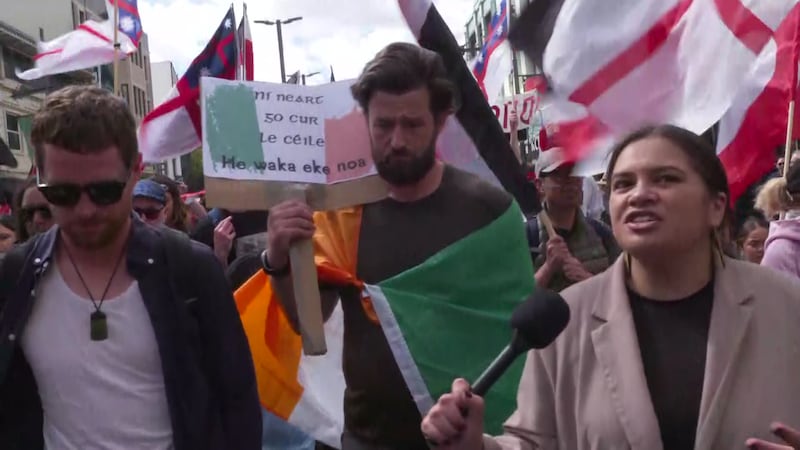
Walking through the crowd, alongside many others, were two Irishmen wearing their nation’s flag and holding a sign that read, “Ní neart go cur le céile”, which translates to “There’s no strength without unity“. Underneath it said: ”He waka eke noa”.
James Mac Aodhagáin said it was the closest reo Māori whakataukī he could find which related to the Irish saying.
It translates to “We’re all in this together”.
“What affects Māori affects the rest of us and we have to stand with Māori."
He joined the hīkoi due to the kaupapa being important to him.
“I think the idea that you will be able to rewrite a contract between Māori and the Crown to benefit anybody other than those two parties, it’s a really, really bad precedent to put in place.
“I think he waka eke noa, we’re all in the same boat.”
Mac Aodhagáin added there was yet to be a hīkoi on the wrong side of history in Aotearoa.
“It just doesn’t pay for us to sit by and watch while our brothers and sisters are definitely going to struggle because of these changes proposed,” he said.
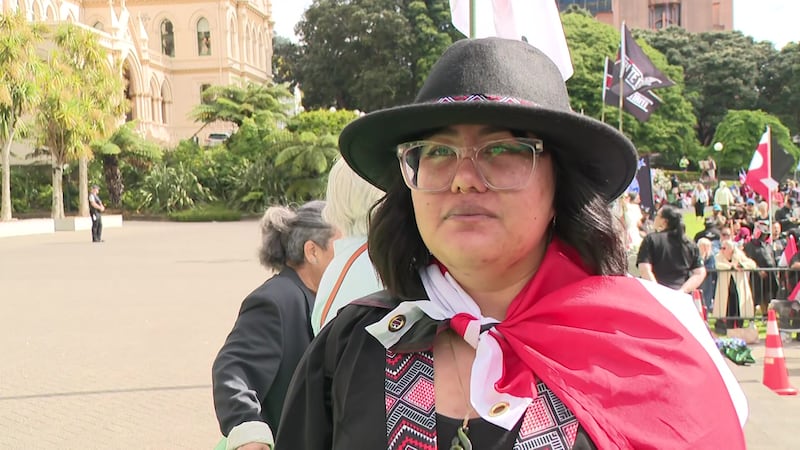
University student Chance Henry is on study leave and joined the march to Parliament for her tīpuna.
“They didn’t go through all of the struggles back in 1840 to see where we are as a country right now.
“I stand with that proudly and I stand with the future generations as well.”
In her opinion, the biggest issue she has with the Treaty Principles Bill is it is trying to “erase Māori culture to try and assimilate Māori into the generated colonised public“.
“[They’re] trying to make it as a way for us to be more cohesive as a country, although many different cultures celebrate themselves differently, whereas Māori is seen in a negative light and, instead of that, I think we need to uplift and make it more positive,” Henry said.

